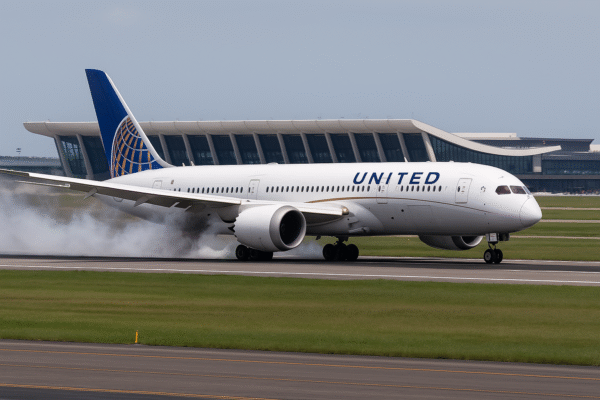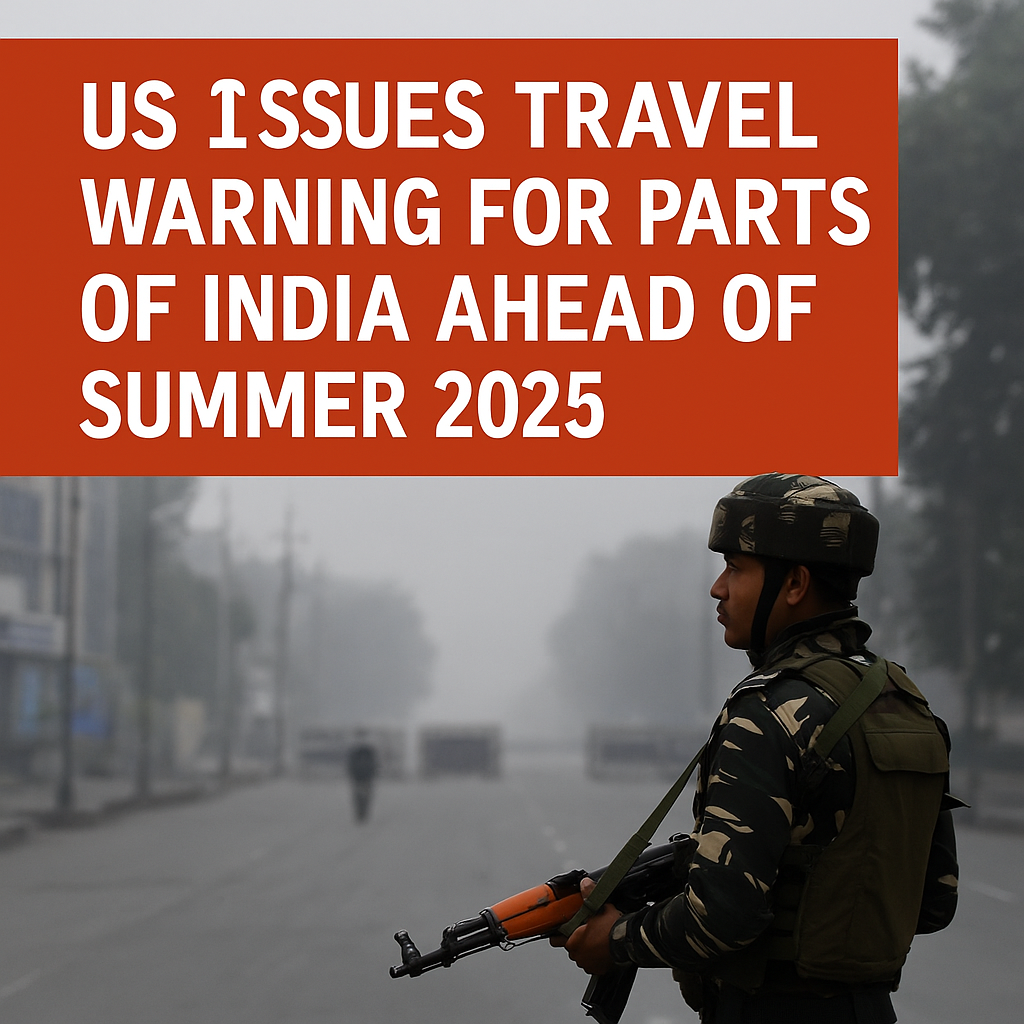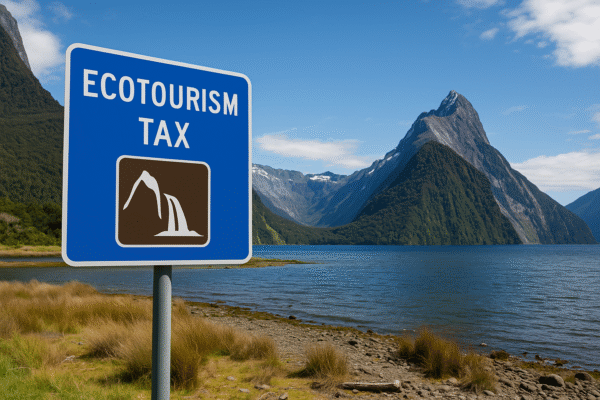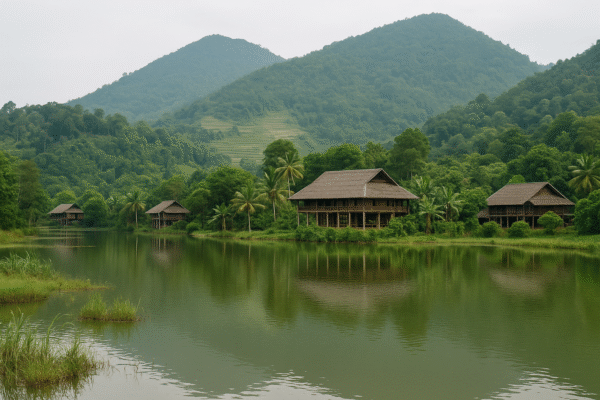US Travel Advisory Warns Against Visiting High-Risk Regions in India Amid Rising Security Threats
New Delhi, June 2025 – As the summer travel season unfolds, the United States Department of State has issued a stark travel advisory for India, urging American citizens to exercise increased caution and avoid specific regions marked by violence, political instability, and rising crime. The advisory comes as part of the routine security assessment but underscores heightened concern over worsening conditions in several Indian states.
The advisory categorizes India overall under “Level 2: Exercise Increased Caution,” but escalates the classification for certain regions, placing them under the highest risk designation—“Level 4: Do Not Travel.” These include Jammu and Kashmir, parts of Maharashtra, northern Telangana, western West Bengal, Manipur, and areas in central and eastern India.
According to the official notice, the primary risks in these areas stem from terrorist activities, civil unrest, violent crimes, and insufficient access to emergency services. The advisory reflects concerns not only for everyday crime but also for large-scale incidents and possible disruptions from ongoing political tensions.
Spotlight on Kashmir and Manipur
Among the most severely affected is Jammu and Kashmir, particularly the Kashmir Valley, including well-known destinations such as Srinagar, Gulmarg, and Pahalgam. Although these towns are traditionally popular among tourists for their scenic beauty and cultural heritage, they have experienced frequent unrest and threats from militant groups, casting a long shadow over their tourism appeal.
The US State Department noted persistent instability in the region, making it unsafe for international travelers. The advisory highlights that US government personnel are prohibited from traveling to these areas without special authorization, and emergency services are extremely limited.
Another flashpoint highlighted in the advisory is Manipur, in the country’s northeast. The region has seen waves of ethnic violence, displacement, and ongoing civil disturbances over the past year. The US government’s classification of Manipur under “Level 4: Do Not Travel” is among the most severe, typically reserved for regions experiencing active conflict or widespread breakdown of public services.
Expanding Risk Zones: Maharashtra, Telangana, West Bengal
In addition to the above regions, the advisory also draws attention to eastern Maharashtra, northern Telangana, and western West Bengal, where reports of terrorist incidents, armed robbery, and sexual violence have been reported. These areas, though less publicized internationally, have experienced periodic violence, often targeting security forces and local governance structures.
Tourists are advised to remain particularly cautious in crowded places such as markets, railway stations, and tourist hotspots, where the risk of theft and terrorist activity is elevated.
Restrictions and Travel Tips for Americans
The US advisory also reminds travelers to stay informed of local laws and regulations, which in many Indian states may restrict the use of GPS devices, satellite phones, and encrypted communications. These restrictions are often enforced without warning and can result in serious legal consequences.
Female travelers, especially those considering solo travel in rural or high-risk regions, have been specifically advised against doing so, given the increased threat of gender-based violence and inadequate law enforcement response in these areas.
The US Embassy in New Delhi remains the primary point of contact for American citizens in case of emergencies. The embassy has updated its resources, including real-time alerts, safety checklists, and evacuation protocols.
India Still Open to Tourism—but With Caution
Despite these security concerns, India remains one of the world’s most popular travel destinations, drawing millions of visitors each year to sites like the Taj Mahal, Kerala’s backwaters, Rajasthan’s palaces, and Goa’s beaches. However, the advisory serves as a timely reminder for travelers to plan carefully, stay informed about local conditions, and avoid areas flagged by international agencies.
The Indian Ministry of Tourism has not issued a formal response to the US advisory but has reiterated its commitment to ensuring traveler safety through cooperation with local law enforcement and international embassies.
Meanwhile, many tour operators and airlines continue to monitor developments, with some considering route adjustments and itinerary changes to avoid risk-prone areas.
Final Recommendations
The US State Department encourages travelers to enroll in the Smart Traveler Enrollment Program (STEP) before traveling to India. This free service provides real-time updates, safety alerts, and allows the embassy to locate and assist US citizens during emergencies.
For Americans already in India or planning travel this summer, staying updated through verified channels such as the US Embassy website, Centers for Disease Control and Prevention (CDC), and local news outlets is strongly advised.
As global travel rebounds post-pandemic, understanding security landscapes has become more critical than ever. The current advisory does not seek to deter all travel to India but to empower tourists with the knowledge needed to make informed and safe choices.
For more travel news like this, keep reading Global Travel Wire






















